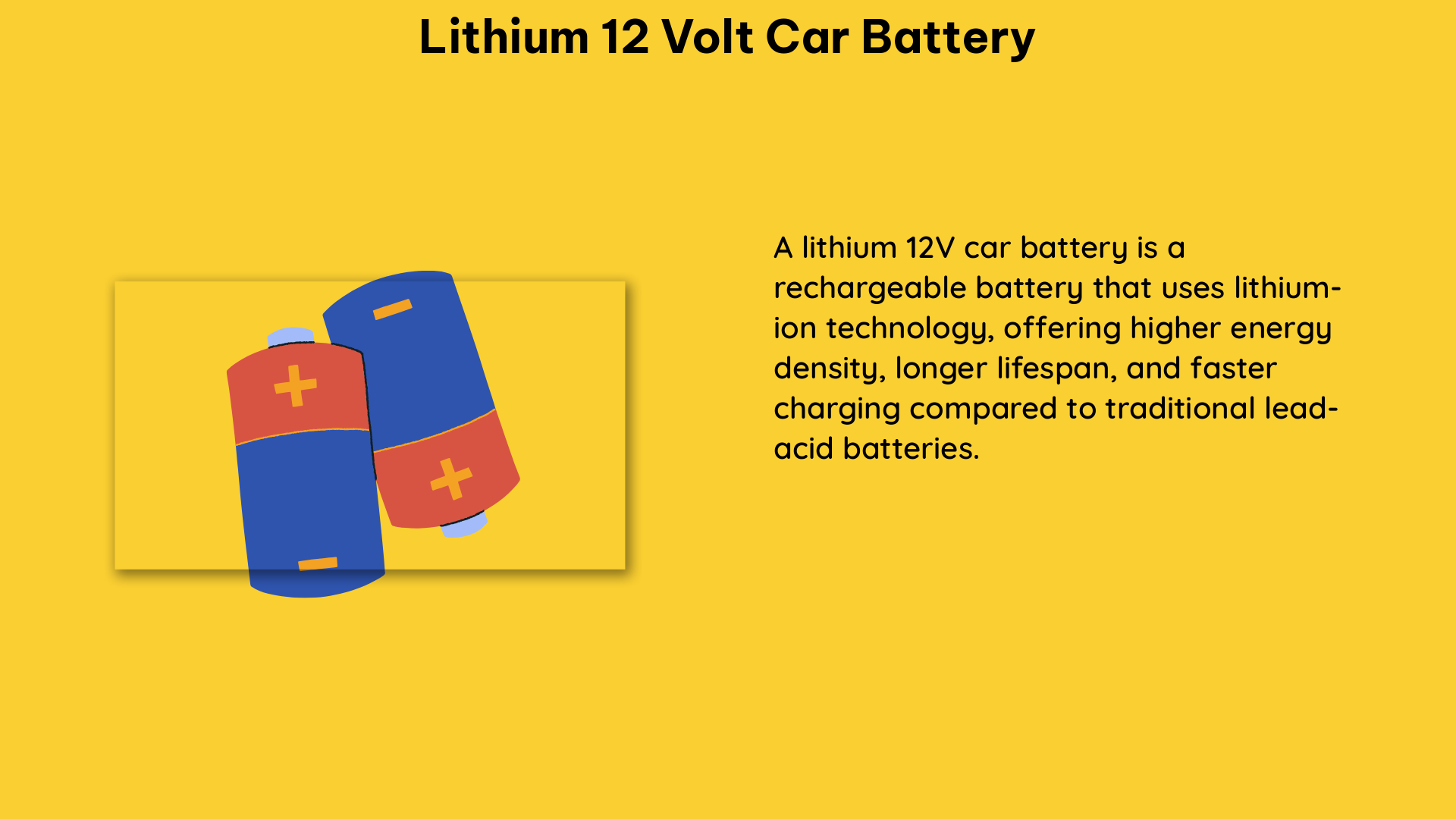Lithium 12-volt car batteries have emerged as a game-changer in the automotive industry, offering a range of benefits over traditional lead-acid batteries. These advanced power sources boast higher energy density, longer cycle life, and lower self-discharge rates, making them an increasingly popular choice for modern vehicles. In this comprehensive guide, we’ll delve into the technical specifications, performance characteristics, and practical considerations for incorporating lithium 12-volt car batteries into your DIY projects or vehicle upgrades.
Lithium 12-Volt Car Battery Specifications
Capacity
Lithium 12-volt car batteries typically have a capacity ranging from 30 Ampere-hours (Ah) to 100 Ah, depending on the specific model and application. This wide range allows users to select the appropriate battery size based on their power requirements, ensuring optimal performance and runtime.
Voltage
The nominal voltage of a lithium 12-volt car battery is 12.8 volts, with a charging voltage of up to 14.4 volts and a discharging voltage as low as 9 volts. This voltage range ensures compatibility with standard 12-volt automotive electrical systems while providing the necessary power for various applications.
Weight
One of the key advantages of lithium 12-volt car batteries is their significantly lower weight compared to traditional lead-acid batteries. Depending on the capacity, these batteries typically weigh between 6 kilograms (kg) to 15 kg, making them a more lightweight and easily manageable option for DIY projects and vehicle modifications.
Cycle Life
Lithium 12-volt car batteries boast an impressive cycle life, with the ability to deliver up to 5,000 cycles at an 80% depth of discharge (DoD). This is a significant improvement over lead-acid batteries, which typically have a cycle life of 300 to 500 cycles at the same DoD. This extended cycle life translates to a longer-lasting and more reliable power source for your vehicle or application.
Efficiency
Lithium 12-volt car batteries offer a higher energy efficiency of up to 95%, compared to 80-85% for lead-acid batteries. This improved efficiency results in less energy loss during charging and discharging, leading to better overall performance and reduced power consumption.
Temperature Range
Lithium 12-volt car batteries can operate in a wider temperature range, from -20°C to 60°C, compared to the -10°C to 40°C range of lead-acid batteries. This expanded temperature tolerance allows for reliable performance in a variety of climates and environments, making them a versatile choice for various applications.
Charging Time
One of the significant advantages of lithium 12-volt car batteries is their faster charging time. These batteries can be charged up to five times faster than lead-acid batteries, reducing the charging time from 10-12 hours to just 2-3 hours. This rapid charging capability is particularly beneficial for applications that require frequent battery replenishment.
Self-Discharge Rate
Lithium 12-volt car batteries have a lower self-discharge rate of 1-3% per month, compared to the 5-10% per month rate of lead-acid batteries. This reduced self-discharge rate means that lithium batteries can maintain their charge for longer periods, reducing the need for frequent recharging and ensuring a more reliable power source.
Incorporating Lithium 12-Volt Car Batteries into DIY Projects

When incorporating lithium 12-volt car batteries into your DIY projects, it’s essential to follow a structured approach to ensure safe and efficient operation. Here are the key steps to consider:
-
Select a Suitable Battery: Carefully choose a lithium 12-volt car battery that matches the capacity, voltage, and physical dimensions required for your specific application. Consider factors such as power demands, available space, and weight constraints.
-
Install a Battery Management System (BMS): A BMS is a crucial component for managing the charging and discharging of lithium 12-volt car batteries. It monitors the battery’s voltage, current, and temperature, ensuring safe operation and prolonging the battery’s lifespan.
-
Connect the Battery: When connecting the lithium 12-volt car battery to your vehicle’s electrical system, pay close attention to the positive and negative terminals, ensuring a secure and proper connection.
-
Charge the Battery: Use a charger specifically designed for lithium batteries to charge your 12-volt car battery. Follow the manufacturer’s instructions carefully to avoid any potential issues during the charging process.
-
Monitor the Battery: Regularly monitor the voltage, current, and temperature of the lithium 12-volt car battery using a multimeter or a dedicated battery monitoring system. This will help you identify any potential issues and maintain the battery’s optimal performance.
By adhering to these guidelines and leveraging the technical specifications of lithium 12-volt car batteries, you can successfully integrate these advanced power sources into your DIY projects, ensuring reliable and efficient performance.
Conclusion
Lithium 12-volt car batteries have revolutionized the automotive industry, offering a range of benefits over traditional lead-acid batteries. With their higher energy density, longer cycle life, and lower self-discharge rate, these batteries have become an increasingly popular choice for both OEM and aftermarket applications.
By understanding the technical specifications and following the recommended steps for incorporating lithium 12-volt car batteries into your DIY projects, you can unlock the full potential of these advanced power sources. Whether you’re upgrading your vehicle’s electrical system or powering a specialized application, lithium 12-volt car batteries provide a reliable and efficient solution that can enhance the performance and longevity of your project.
References
- Battery University, “How to Measure State-of-charge – Battery University”, https://batteryuniversity.com/article/bu-903-how-to-measure-state-of-charge
- Nature, “Data-driven capacity estimation of commercial lithium-ion batteries …”, https://www.nature.com/articles/s41467-022-29837-w
- ScienceDirect, “Lithium-ion battery data and where to find it – ScienceDirect.com”, https://www.sciencedirect.com/science/article/pii/S2666546821000355

The lambdageeks.com Core SME Team is a group of experienced subject matter experts from diverse scientific and technical fields including Physics, Chemistry, Technology,Electronics & Electrical Engineering, Automotive, Mechanical Engineering. Our team collaborates to create high-quality, well-researched articles on a wide range of science and technology topics for the lambdageeks.com website.
All Our Senior SME are having more than 7 Years of experience in the respective fields . They are either Working Industry Professionals or assocaited With different Universities. Refer Our Authors Page to get to know About our Core SMEs.